Joint design and planning of "Proshed" - a seminar on sustainable health education at the State University of Zanzibar for students in the health sector.
Proshed
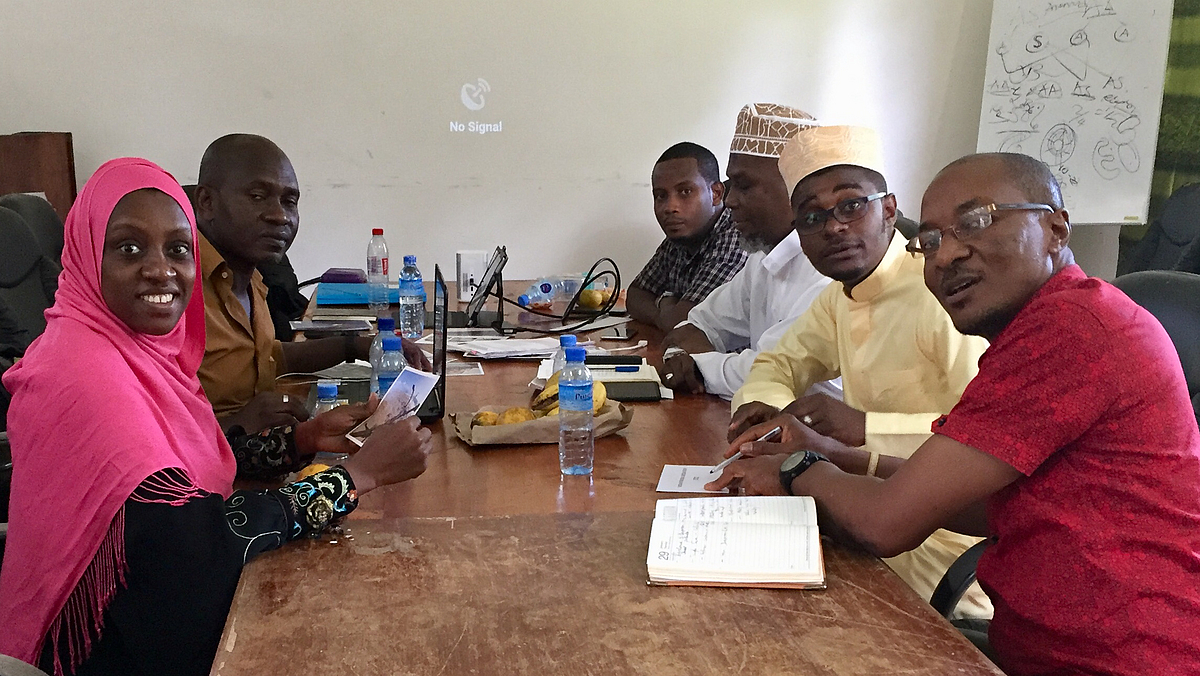
The State University of Zanzibar (SUZA)
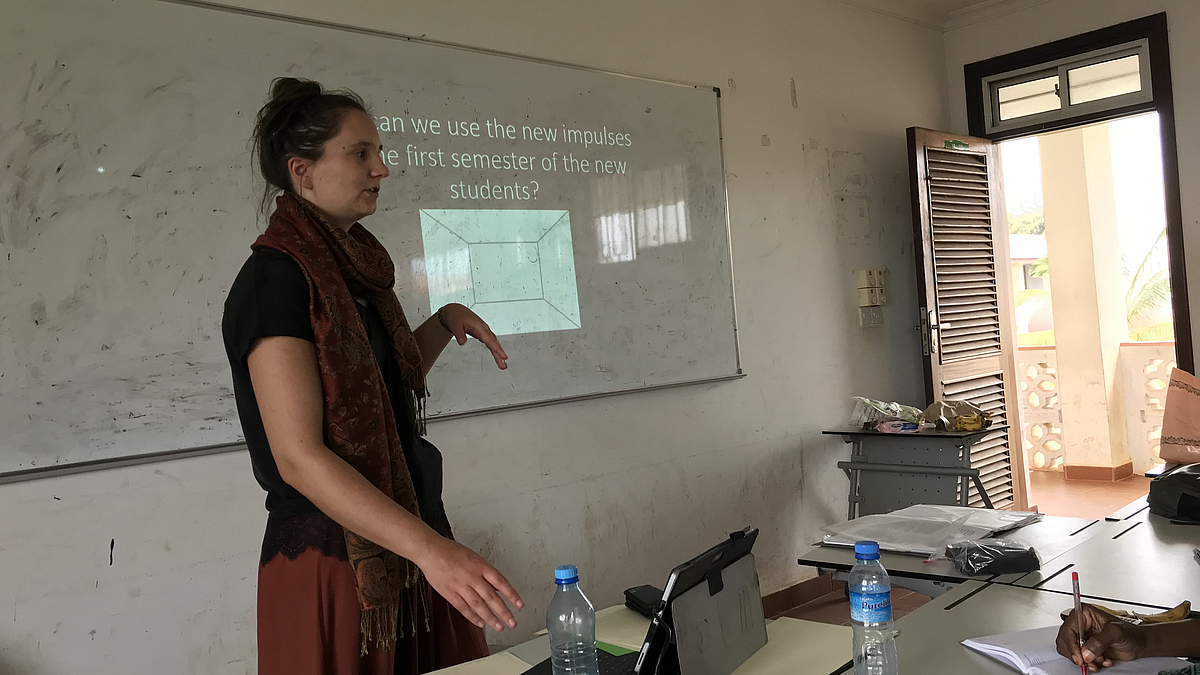
Saskia Tenberg
Proshed is being developed as part of a doctoral thesis at Faculty 2 of the University of Bremen.
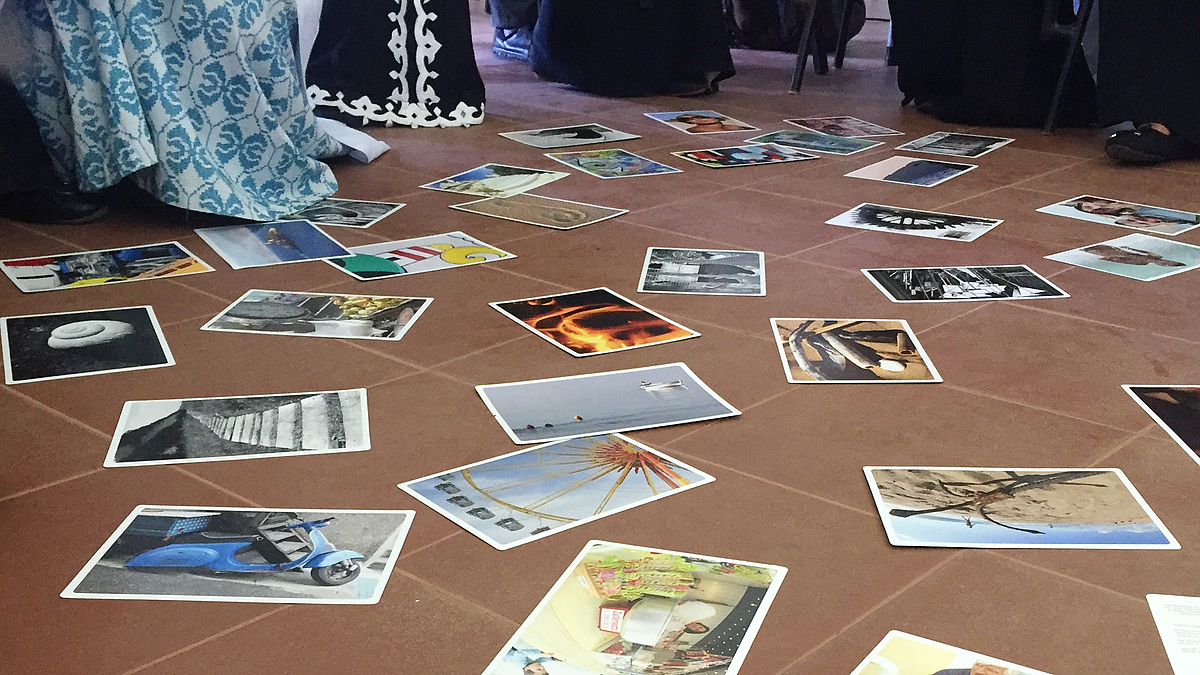
Images in Health Education
The seminar should enable students to pass on their knowledge about healthy nutrition to different target groups (e.g. children or pregnant women) so that they can integrate a healthy lifestyle into their everyday life and thus prevent nutrition-related diseases (e.g. diabetes).
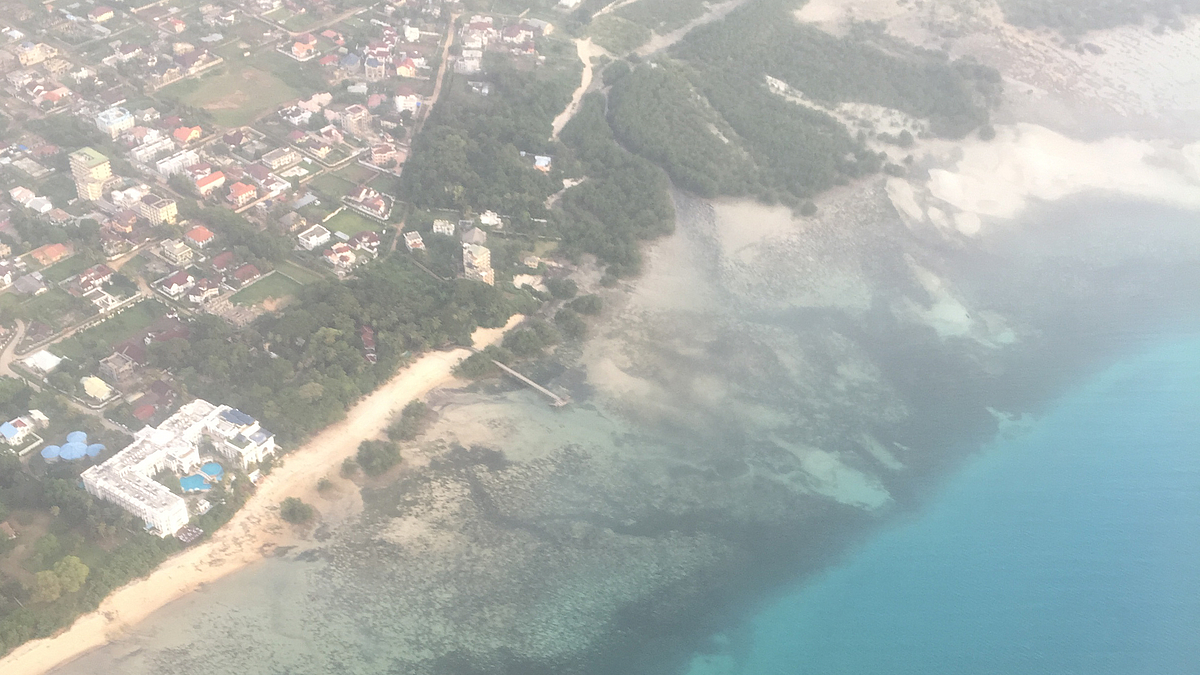
Bird's eye view of the Zanzibar archipelago
The Zanzibar archipelago in the Indian Ocean consists of the islands of Unguja and Pemba. Here you can see the coast of Unguja. Zanzibar is a semi-autonomous state of the East African nation of Tanzania.
Proshed in a nutshell
Proshed is a seminar for students in the health sector at the State University of Zanzibar.
The aim of the seminar is the professionalization in the field of sustainable health education with a focus on nutrition.
project period
01.09.2019 - 31.08.2022
The project presented

Proshed is an acronym for PROfessionalization for Sustainable Health EDucation. The project aims to enable students at the School of Health and Medical Sciences (SHMS) in Zanzibar to pass on professional knowledge to various target groups in society in a sustainable way.
In the Proshed seminar, competencies in the areas of didactics, health education and nutrition competence are taught in order to prevent nutrition-related diseases (e.g. diabetes mellitus type 2). Concepts and the contents of the seminar are currently being developed within the framework of a doctoral thesis at the Institute for Didactics of Natural Sciences - Biology for sustainable health education.
The dissertation project is connected to the project MENTION (Increased competencies for nutrition in health care in Zanzibar,) and is supported by team members of the following research institutes: Institute for Didactics of Science and the Department of Glycobiochemistry (University of Bremen), School of Health and Medical Sciences (State University of Zanzibar) and the Unit Lifestyle-Related Disorders of the Leibniz Institute for Prevention Research and Epidemiology -BIPS.
The dissertation project in the field of didactics of biology is based on the approach of Design Based Research (DBR). This approach links theory and practice by enhancing the development of learning environments while advancing the theory of teaching and learning in the field. In Proshed, a new seminar is being designed at the State University of Zanzibar (SUZA), advancing theory in the area of pedagogical content knowledge (see Park & Oliver, 2007). This will help aspiring medical students communicate their knowledge to different target groups in a sustainable manner.
In the research process, design, implementation, analysis, and re-design are repeated in cycles. The goal is to optimize the seminar step by step and to collect data for the further development of the theory in the field of educational content knowledge of future physicians.
Increased competencies for nutrition in Zanzibari health care. (n.d.). Retrieved October 31, 2019, from www.bips-institut.de/en/research/projects/detail-view.html
PAGEL - Partnerships for the Health Sector in Developing Countries. (n.d.). Retrieved October 31, 2019, from www.daad.de/der-daad/unsere-aufgaben/entwicklungszusammenarbeit/foerderprogramme/hochschulen/infos/en/44500-pagel--partnerships-for-the-health-sector-in-developing-countries/
Park, S., & Oliver, J. S. (2007). Revisiting the Conceptualisation of Pedagogical Content Knowledge (PCK): PCK as a Conceptual Tool to Understand Teachers as Professionals. Res Sci Educ, 38, 261–284. doi.org/10.1007/s11165-007-9049-6
SUTAS. (n.d.). Retrieved October 31, 2019, from www.leibniz-zmt.de/en/research/research-projects/sutas.html%0D

Project manager
Saskia Tenberg
Institute for Didactics of Natural Sciences - Biology
stenbergprotect me ?!uni-bremenprotect me ?!.de
phone: +49 (0)421 218-50276
Join in!
Especially students and lecturers of the School of Health and Medical Sciences are invited to participate in the project.
If you are interested in the Proshed project, please write to me!
Proshed is also represented by the same name on LinkedIn - we are looking forward to new followers, a lively exchange and your ideas!
Sustainable Development Goals
Proshed relates to Sustainable Development Goals 2 (No Hunger), 3 (Health and Well-Being), and 4 (Quality Education), and aims to transfer research to society through direct engagement with the community.




press release 12/ 2019
What do our partners say

Sakina Alawy, lecturer at SHMS
In the Proshed Seminar I wanat the students to learn how they could support the community to maintain their health through a healthy nutrition and prevent diseases. The community should be aware that they can prevent deseases by themselves and maintain a healthy body through good nutrition.

Habakkuk.R. Silas, medical student SUZA
What drives my motivation: The Proshed project is a realistic way to get in touch with other professionals from different countries. And to understand different standards of phenomena and nature presented in the field of health, nutrition and lifestyle in relation to the community.

Amanzi Issa Bakari, medical student SUZA
I am motivated on the subject because I think that good nutrition is one of the most important aspects of health care.

Adam Rashid, lecturer at SHMS
Abridged version of an interview with Adam Rashid - Lecturer at the School of Health and Medical Sciences about nutritional challenges in Zanzibar and possible solutions.
Interview
3 MB
Proshed podcast
The Proshed Podcast brings together voices and expertise from the Proshed team.
The podcast is a supplement to the seminar material designed to help students in the School of Health and Medical Sciences promote sustainable health literacy in their patients.
moreCooperations and Sponsoring
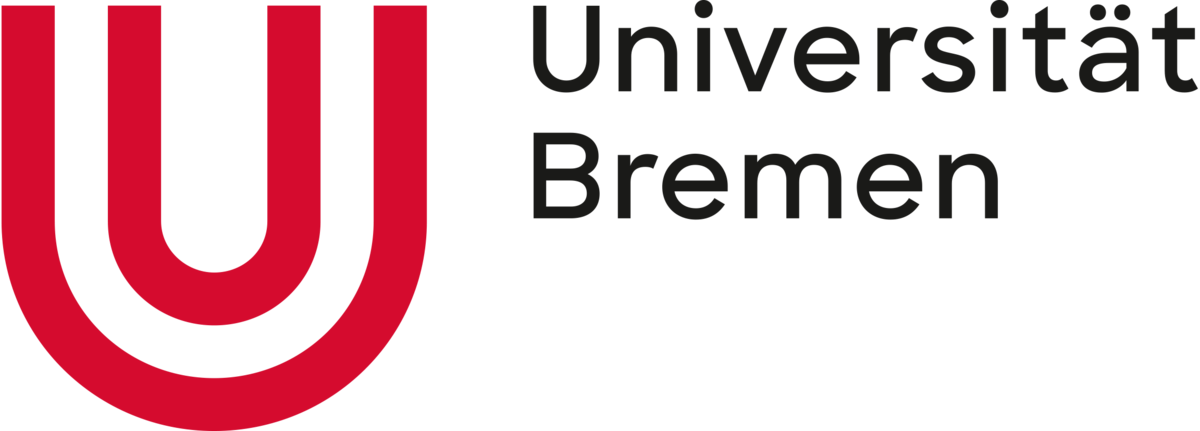
The Department of Biology and Chemistry, in particular Prof. Sørge Kelm from the University of Bremen, has many years of experience in coordinating cooperative research projects with partners in sub-Saharan Africa, both in research and capacity building. One focus of his projects is the role of nutrition in non-communicable diseases on the continent.
The Institute for Didactics of Science (IDN) at the University of Bremen. The PhD thesis associated with Proshed is written by Saskia Tenberg at Faculty 2 (Natural Sciences) and supervised by Prof. Doris Elster from IDN Biology. Research areas are on a European level in the field of responsible research for a sustainable future as well as the professionalization of teachers in the field of natural sciences for the school and extracurricular sector.
The programs at SHMS aim to train health professionals, physicians, nurses, laboratory scientists and pharmacists. This is essential to address current and future health problems. The SHMS is also responsible for providing trained health workers within and outside the region, and for identifying and describing key health issues in the local and international context.
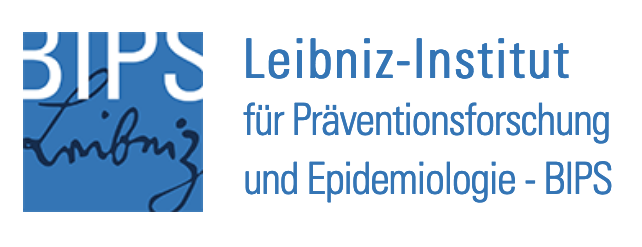
The Leibniz Institute for Prevention Research and Epidemiology - BIPS uses its research to develop effective strategies for the prevention of chronic, non-communicable diseases. The primary goal is to set the course for a healthy life course at an early stage. Our research therefore focuses on starting points of cross-disease relevance, such as lifestyle and living environment, biological and social factors, as well as early detection and therapy safety. Our research spectrum ranges from method development and the identification of disease causes to intervention and implementation research. In addition, we inform policy makers and the general public and are involved in academic qualification. BIPS thus covers the entire cycle of epidemiological research. In September 2016, BIPS was also appointed as a WHO Collaborating Centre for Obesity Prevention, Nutrition and Physical Activity.



